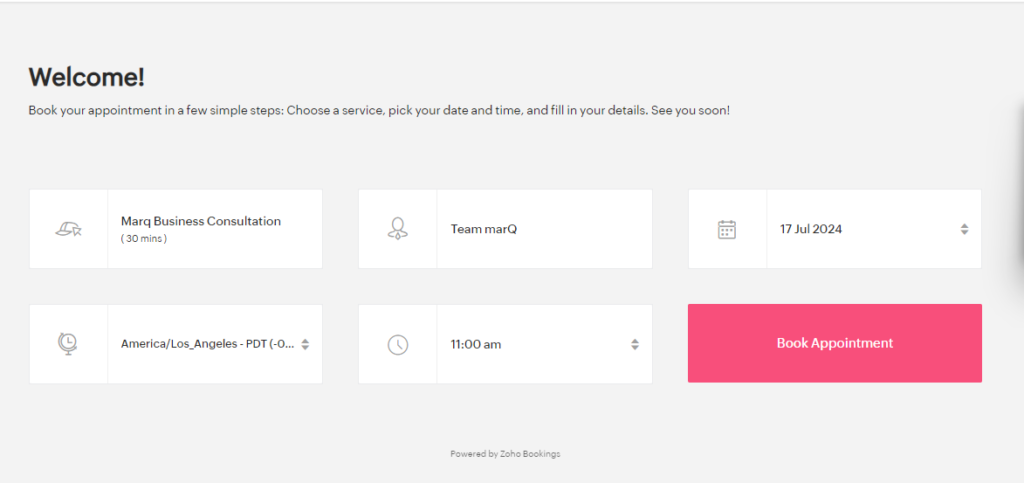Choosing the Best ERP for Small Business: Everything You Need to Know
TABLE OF CONTENTS
- Introduction
- Understanding ERP Systems
- Importance of Choosing the Best ERP
- Key Features of the Best ERP
- Factors to Consider When Choosing an ERP
- Top ERP Solutions for Small Businesses
- Cost Considerations
- Customization Options
- Integration Capabilities
- Cloud-Based vs. On-Premise ERP
- Implementation Process
- Overcoming Challenges
- Success Stories
- Future Trends in ERP
- Conclusion
- FAQs
Introduction
In the dynamic landscape of modern business, small enterprises are increasingly turning to ERP (Enterprise Resource Planning) systems to streamline operations, enhance productivity, and drive growth. Understanding the pivotal role of ERP in small business management is crucial for making informed decisions.

Understanding ERP Systems
ERP systems integrate core business processes such as finance, human resources, inventory management, and supply chain operations into a unified platform. This integration enables real-time data access, improves decision-making, and enhances overall operational efficiency.
Importance of Choosing the Best ERP
Selecting the right ERP solution is critical for small businesses aiming to optimize resources, reduce costs, and achieve sustainable growth. A well-chosen ERP system not only aligns with current business needs but also scales with future expansion plans.

Key Features of the Best ERP
When evaluating ERP solutions, consider these essential features that contribute to operational excellence:
Scalability
Choose an ERP system that can accommodate business growth without compromising performance or requiring extensive reconfiguration.
User-Friendly Interface
An intuitive interface simplifies adoption across the organization, minimizing training time and maximizing productivity.
Customization Options
Tailor the ERP software to meet specific industry requirements and unique business processes, enhancing its effectiveness.
Integration Capabilities
Seamlessly integrate ERP with existing systems such as CRM (Customer Relationship Management) and financial software for comprehensive data management.
Analytics and Reporting
Access advanced analytics and reporting tools within the ERP system to gain actionable insights and support strategic decision-making.

CLAIM YOUR MARKETING STRATEGY SESSION TODAY!
WE REVIEW YOUR MARKETING EFFORTS & SHOW YOU AREAS TO IMPROVE.
Factors to Consider When Choosing an ERP
Several factors influence the selection of an ERP system tailored to small business needs:
Business Requirements Assessment
Conduct a thorough assessment of current workflows, pain points, and growth objectives to identify ERP functionalities that address specific business challenges.
Budget Constraints
Evaluate the total cost of ERP ownership, including implementation, licensing, training, and ongoing maintenance, to align with financial capabilities.
Vendor Reputation and Support
Choose an ERP provider with a proven track record of successful implementations and reliable customer support to ensure seamless adoption and continuous assistance.
Scalability and Flexibility
Select an ERP solution that offers scalability and flexibility to adapt to evolving business needs and industry trends.
Top ERP Solutions for Small Businesses
Explore leading ERP solutions renowned for their performance and suitability for small enterprises:
SAP Business One
Known for its comprehensive features and scalability, SAP Business One is ideal for growing small businesses seeking robust ERP capabilities.
Oracle NetSuite
Oracle NetSuite offers cloud-based ERP solutions with integrated financial management, CRM, and e-commerce functionalities.
Microsoft Dynamics 365
Microsoft Dynamics 365 provides flexible deployment options and seamless integration with Microsoft products, enhancing operational efficiency.
Odoo
An open-source ERP platform that offers customizable modules, making it cost-effective and adaptable for small businesses.
Zoho ERP
Zoho ERP provides a user-friendly interface and integrates well with other Zoho business applications, enhancing collaboration and efficiency.
Cost Considerations
For small businesses with budget constraints, consider these cost-effective ERP options:
Odoo Community Edition
A free ERP solution with basic features, expandable through affordable paid modules as business requirements grow.
ERPNext
An open-source ERP system that offers comprehensive functionalities without the high costs associated with proprietary software.
Dolibarr
Dolibarr offers modular ERP solutions at competitive prices, suitable for small businesses looking for scalability and affordability.
.
Customization Options
Tailoring an ERP system to fit specific business needs enhances its effectiveness and user adoption:
Acumatica
Acumatica offers extensive customization capabilities and is known for its flexibility in adapting to diverse industry requirements.
Infor CloudSuite
Infor CloudSuite provides industry-specific ERP solutions with customizable features for enhanced operational efficiency and compliance.
SYSPRO
SYSPRO offers tailored ERP solutions designed to optimize manufacturing and distribution processes, ensuring business success.
Integration Capabilities
Efficient integration of ERP with other critical business applications is essential for seamless operations:
CRM Integration
Integrate ERP with CRM systems to streamline customer interactions, improve sales processes, and enhance customer satisfaction.
Supply Chain Integration
Optimize supply chain management by integrating ERP with logistics and inventory systems, ensuring timely and cost-effective operations.
Financial System Integration
Link ERP with financial management software to automate accounting processes, ensure compliance, and facilitate accurate financial reporting.
Cloud-Based vs. On-Premise ERP
Choose between cloud-based and on-premise ERP deployment models based on business requirements and preferences:
Cloud-Based ERP
Cloud-based ERP systems offer flexibility, scalability, and accessibility, allowing businesses to access data and applications from anywhere with internet connectivity.
On-Premise ERP
On-premise ERP solutions provide greater control over data security and customization but require significant upfront investment in infrastructure and maintenance.

CLAIM YOUR MARKETING STRATEGY SESSION TODAY!
WE REVIEW YOUR MARKETING EFFORTS & SHOW YOU AREAS TO IMPROVE.
Implementation Process
Successful implementation of an ERP system involves strategic planning and execution:
Planning and Preparation
Define project goals, establish timelines, allocate resources, and engage stakeholders to ensure alignment with business objectives.
Data Migration and Integration
Transfer existing data into the new ERP system and integrate it with other business applications to maintain data integrity and operational continuity.
Training and Change Management
Provide comprehensive training and change management support to empower employees and maximize ERP utilization across the organization.
Overcoming Challenges
Addressing common challenges during ERP implementation is crucial for achieving long-term success:
Resistance to Change
Proactively communicate the benefits of ERP adoption, involve key stakeholders early in the process, and provide ongoing support to overcome resistance.
Data Quality and Accuracy
Conduct data cleansing and validation processes to ensure data accuracy and integrity during migration and ongoing operations.
Budget Management
Monitor project expenses closely, identify potential cost overruns early, and prioritize critical investments to stay within budget constraints.
Success Stories
Learn from small businesses that have successfully implemented ERP systems and achieved significant business improvements:
Case Study: XYZ Manufacturing
XYZ Manufacturing increased production efficiency by 30% after implementing SAP Business One, enhancing resource management and inventory control.
Case Study: ABC Retail
ABC Retail streamlined order processing and improved customer satisfaction with Oracle NetSuite ERP’s integrated e-commerce and CRM functionalities.
Case Study: LMN Services
LMN Services optimized financial reporting and operational visibility with Microsoft Dynamics 365, reducing costs and accelerating business growth.
Future Trends in ERP
Stay ahead of industry trends with emerging developments in ERP technology:
AI and Machine Learning
Integrate AI and machine learning capabilities into ERP systems to automate routine tasks, predict trends, and enhance decision-making processes.
IoT Integration
Utilize IoT (Internet of Things) devices to gather real-time data for improved supply chain management, asset tracking, and predictive maintenance.
Blockchain Applications
Explore blockchain technology for secure transactions, transparent supply chain management, and enhanced data integrity within ERP ecosystems.
Conclusion
Choosing the best ERP for small businesses involves careful consideration of business needs, budget constraints, and future scalability. By selecting an ERP system that aligns with these factors and offers robust features, small enterprises can streamline operations, optimize resources, and achieve sustainable growth.
FAQs
ERP system integration involves connecting various business processes and applications into a unified system to streamline operations and improve efficiency.
ERP implementation services include planning, configuring, and deploying ERP systems to meet specific business requirements and goals.
ERP facilitates business process integration by automating workflows, enhancing collaboration, and ensuring data consistency across departments.
Supply chain integration in ERP systems improves visibility, efficiency, and responsiveness in managing inventory, logistics, and supplier relationships.
Optimizing financial system integration with ERP enhances accuracy in financial reporting, accelerates transaction processing, and strengthens compliance measures.
This comprehensive guide on choosing the best ERP for small business aims to equip small enterprises with the knowledge and insights needed to make informed decisions. Whether you’re considering scalability, cost-effectiveness, or integration capabilities, finding the right ERP system can transform your business operations and drive sustainable growth. For more information and personalized recommendations, visit MARQ Networks.
ABOUT THE AUTHOR:

Syeda Hufsa
Syeda Hufsa is the Content Creation Specialist at marQ Networks. Syeda Hufsa loves writing both personally and professionally. She graduated from reupdated university field of Computer science.




When someone writes an paragraph he/she maintains
the plan of a user in his/her mind that how a user can know it.
So that’s why this article is outstdanding.
Thanks!
Thank you so much! We’re glad to hear that you found the article helpful and well-planned.